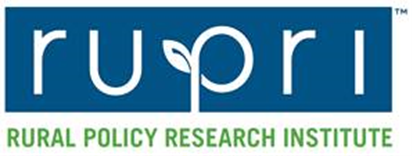- CMS: Medicare Program; Implementation of Prior Authorization for Select Services for the Wasteful and Inappropriate Services Reduction (WISeR) Model
- Public Inspection: CMS: Medicare Program: Implementation of Prior Authorization for Select Services for the Wasteful and Inappropriate Services Reduction Model
- CMS: Secretarial Comments on the CBE's (Battelle Memorial Institute) 2024 Activities: Report to Congress and the Secretary of the Department of Health and Human Services
- HHS: Patient Protection and Affordable Care Act: Marketplace Integrity and Affordability
- HRSA Announces Action to Lower Out-of-Pocket Costs for Life-Saving Medications at Health Centers Nationwide
- Public Inspection: HHS: Patient Protection and Affordable Care Act: Marketplace Integrity and Affordability
- Increased Risk of Cyber Threats Against Healthcare and Public Health Sector
- Eight Hospitals Selected for First Cohort of Rural Hospital Stabilization Program
- Announcing the 2030 Census Disclosure Avoidance Research Program
- CMS: Medicare Program; Hospital Inpatient Prospective Payment Systems for Acute Care Hospitals and the Long-Term Care Hospital Prospective Payment System and Policy Changes and Fiscal Year 2026 Rates; Requirements for Quality Programs; and Other Policy Changes; Correction
- CMS: Medicare Program; Hospital Inpatient Prospective Payment Systems for Acute Care Hospitals and the Long-Term Care Hospital Prospective Payment System and Policy Changes and Fiscal Year 2026 Rates; Requirements for Quality Programs; and Other Policy Changes; Correction
- CMS: Medicare and Medicaid Programs; Contract Year 2026 Policy and Technical Changes to the Medicare Advantage Program, Medicare Prescription Drug Benefit Program, Medicare Cost Plan Program, and Programs of All-Inclusive Care for the Elderly; Correction
- CMS: Medicare and Medicaid Programs; Contract Year 2026 Policy and Technical Changes to the Medicare Advantage Program, Medicare Prescription Drug Benefit Program, Medicare Cost Plan Program, and Programs of All-Inclusive Care for the Elderly; Correction
- CMS: Medicare Program; Prospective Payment System and Consolidated Billing for Skilled Nursing Facilities; Updates to the Quality Reporting Program for Federal Fiscal Year 2026
- CMS: Medicare Program; FY 2026 Hospice Wage Index and Payment Rate Update and Hospice Quality Reporting Program Requirements
HHS Announces 15 Additional Drugs for Price Negotiations
The U.S. Department of Health and Human Services (HHS), through the Centers for Medicare & Medicaid Services (CMS), announced the selection of 15 additional drugs covered under Medicare Part D for price negotiations. In accordance with the Inflation Reduction Act, the negotiations with participating drug companies for these 15 drugs will occur in 2025 and any negotiated prices will become effective in 2027. Between November 2023 and October 2024, about 5.3 million people with Medicare Part D coverage used these drugs to treat a variety of conditions, such as cancer, type 2 diabetes, and asthma. These selected drugs accounted for about $41 billion in total gross covered prescription drug costs under Medicare Part D, or about 14%, during that period. When combined with the total gross covered prescription drug costs under Medicare Part D of the 10 drugs selected for the first cycle of negotiations over that same time, this represents over a third of total gross covered prescription drug costs under Medicare Part D. You can read more about the announcement and selected drugs in this HHS Press Release and CMS Factsheet.
President Announces Regulatory Freeze Pending Review
President Trump ordered all executive departments and agencies to take the following steps:
· Do not propose or issue any rule in any manner, including by sending a rule to the Office of the Federal Register (the OFR), until a department or agency head appointed or designated by the President after noon on Jan. 20, 2025, reviews and approves the rule.
· Immediately withdraw any rules that have been sent to the OFR but not published in the Federal Register
· Consistent with applicable law and subject to the exceptions described in paragraph one, consider postponing for 60 days from the date of the memorandum the effective date for any rules that have been published in the Federal Register.
President Trump Ends DEI in Federal Contracts
President Trump signed an Executive Order that terminates DEI preferencing in federal contracting and directs federal agencies to combat private sector discrimination. The enforces long-standing federal statutes and faithfully advances the Constitution’s promise of colorblind equality before the law. Read the fact sheet.
Options for Reducing the Deficit: 2025 to 2034
Congress faces an array of policy choices as it confronts large federal deficits and rising federal debt. In June 2024, under the assumption that current laws governing taxes and spending generally would not change, the Congressional Budget Office (CBO) projected that the federal deficit would average $1.9 trillion per year between 2025 and 2034, or 5.4 percent of gross domestic product (GDP) over that period. In comparison, over the past 50 years, the annual deficit averaged 3.7 percent of GDP. In response, the CBO published Options for Reducing the Deficit: 2025 to 2034 in December 2024.
Novartis Fifth Drugmaker to Sue HRSA to Implement Controversial 340B Rebate Model
Novartis this week became the fifth manufacturer to sue the Health Resources and Services Administration (HRSA) to implement a 340B rebate model. Novartis filed its complaint Wednesday in the US District Court for the District of Columbia.
Buchanan Pushes Coverage Alternatives as W&M Health Chair, Schweikert Backs Telehealth as Oversight Chair
Reps. Vern Buchanan (FL) and David Schweikert (AZ) will continue to chair the Ways & Means health and oversight subcommittees, respectively. Buchanan brings with him expertise on CMS coverage issues and a pledge to push the incoming administration’s goals to cut regulations and offer alternative coverage options. Schweikert advocates for telehealth and artificial intelligence.
Latest Reports Released on Pennsylvania Hospital Utilization Rates!

The Pennsylvania Health Care Cost Containment Council (PHC4) publicly released new County-Level Utilization and Condition-Specific Reports today, giving stakeholders in Pennsylvania valuable insight into ambulatory/outpatient usage and hospitalization rates of high interest conditions, using the most recent data available.
County-Level Utilization Reports are updated every quarter and show the overall total number of inpatient hospitalizations and ambulatory/outpatient cases for Pennsylvania residents. These results are displayed by patient age, sex, and payer. The newly released County-Level Utilization Reports reflect data from Q2 of 2024.
PHC4’s County-Level Condition-Specific Reports focus on several high interest conditions displaying county-specific rates of hospitalization for Pennsylvania residents. This information reflects data from the state fiscal year 2024, which is July 1, 2023, through June 30, 2024. The analysis within the County-Level Condition-Specific Reports is limited to Pennsylvania general acute care hospitals.
“This succinct series of reports sheds light on critical health care components at a county-level. This type of reporting is one of many ways PHC4 proudly supports Pennsylvania communities.” said Barry D. Buckingham, PHC4’s Executive Director. Buckingham went on to say that PHC4’s goals include providing fact-based reporting in support of those charged with prioritizing health care resources effectively. The organization believes this is in direct support of the newly established mission of empowering Pennsylvanians through transparent reporting.
PHC4 is an independent council formed under Pennsylvania statute (Act 89 of 1986, as amended by Act 15 of 2020) in order to address rapidly growing health care costs. PHC4 continues to produce comparative information about the most efficient and effective health care to individual consumers and group purchasers of health services. In addition, PHC4 produces information used to identify opportunities to contain costs and improve the quality of care delivered.
For more information, visit phc4.org or review the full report here.
Media contact:
Barry D. Buckingham, Executive Director, PHC4, bbuckingham@phc4.org
Request Free Oral Health Materials from Pennsylvania Oral Health Coalition

Oral health materials are available on the Request Materials page at no cost. Physical and online materials include oral health flyers, posters, rack cards, postcards, and magnets. Topics include general oral health, kids’ health, tobacco/nicotine, workforce, and fluoride.
These resources are great for patient education in waiting rooms, distribution at health fairs and other
community events, and much more.
New RUPRI Report: Evaluating Medicare Advantage Benchmark Setting Methodology on Rural Counties

Dan Shane PhD; Edmer Lazaro, DPT, MSHC; Fred Ullrich, BA; and Keith Mueller, PhD
This brief explores how the process for setting benchmark payments for Medicare Advantage plans may create different incentives across rural and urban counties.
Key Findings:
- Rural counties are less likely to rank in the lower Medicare Fee for Service (FFS) spending quartiles that receive a higher percentage of the county benchmark: 41 percent of rural counties are categorized in combined quartiles 1 and 2 versus 59 percent for urban counties.
- Global caps (maximum benchmark payments based on pre-Affordable Care Act (ACA) county FFS spending) on benchmark payments are much more likely in rural counties, particularly those in the lower-spending quartiles, reducing incentives for supplemental benefits or reduced cost sharing.
Additional products:
- Medicare Advantage Plan Growth in Rural America: Opportunities for Beneficiaries https://www.ruralhealthresearch.org/projects/1004
- Medicare Advantage Plan Growth in Rural America: Availability of Supplemental Benefits https://rupri.public-health.uiowa.edu/publications/policybriefs/2024/MA_Plan_Growth.pdf
Contact Information:
Keith J. Mueller, PhD; keith-mueller@uiowa.edu
Director, RUPRI Center for Rural Health Policy Analysis
University of Iowa College of Public Health
Office: 1.319.384.3832
Call for Presentations: 2025 Pennsylvania State Data User Conference
 The Pennsylvania State Data Center (PaSDC) invites presenters to participate in the 2025 Pennsylvania Data User Conference. This year’s event will be held on May 15, 2025, at Penn State Harrisburg in Middletown. The annual Data User Conference serves as Pennsylvania’s most comprehensive single-day forum for research and developments in demographic and socioeconomic data.
The Pennsylvania State Data Center (PaSDC) invites presenters to participate in the 2025 Pennsylvania Data User Conference. This year’s event will be held on May 15, 2025, at Penn State Harrisburg in Middletown. The annual Data User Conference serves as Pennsylvania’s most comprehensive single-day forum for research and developments in demographic and socioeconomic data.
The PaSDC Data User Conference aims to educate its audience on demographic and socioeconomic research and policies affecting Pennsylvania. Past presentations have focused on research themes (e.g., aging, prison populations, labor force, and rural Pennsylvania), community development (e.g., case studies and community planning), innovations in technology (e.g., database and data visualization software), and other data-related topics.
Sessions at the conference are non-commercial and vendor neutral. Under no circumstance should a session be a direct promotion of an organization’s product, service, or monetary self-interest. The emphasis should be on the application of demographic and socioeconomic data, technology, and other timely topics.
Submission Details
Proposals will be accepted for team, individual, or panel presentations. To propose a session, please email the topic and a brief description or outline (maximum 250 words) to Jennifer Shultz (jjb131@psu.edu) by Wednesday, February 26, 2025. The PaSDC will notify all selected speakers by March 7, 2025.
Presentation Rules
Presentation proposals will be reviewed by the conference planning committee and selections will be made based upon desired topics, flow, educational value, and understanding of the content. All selected presentations will be published in conference material and online.
Agenda Schedule
All presentations will be on May 15, 2025. Conference organizers will set the time for each presentation to optimize the sequencing and flow of content and tracks. Sessions will end by 5:00 PM.
Speaker Benefits
The PaSDC does not pay fees or travel expenses for speakers. All speakers receive complimentary conference registration, including meals, and are featured in the conference publication and on the conference website. These benefits apply only to speaker(s) and do not extend to support staff or colleagues who may accompany them.
